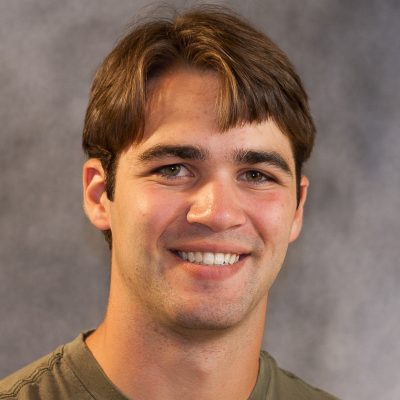Student Spotlight: Christian Posbergh

May 13, 2019
Christian Posbergh is a doctoral student in animal science from Branchburg, New Jersey. After attending Cornell University as an undergraduate, he chose to continue his studies at Cornell due to its program flexibility and research opportunities.
What is your area of research and why is it important?
I study animal genetics and genomics, focusing on sheep and goats. My dissertation work has identified genetic differences among sheep associated with year-round lambing, mature body size, and coat color. I’m also looking at dairy production in goats. By identifying differences at the DNA level, we can then select animals with natural DNA differences associated with improved production, better health, etc., and ideally end up with more efficient animals. As the world population continues to grow, we need to produce more food, and genomic selection in livestock is one tool we can use to increase production to match population growth.
What inspired you to choose this field of study?
I grew up with sheep and became fascinated with a sheep we bought while I was in high school that had a unique color pattern. I wanted to learn how I could breed more sheep like that which lead me to learn more about simple mendelian genetics. As I progressed through high school and then undergrad, I kept wanting to learn more about animal genetics. I was fortunate enough to work with several excellent mentors in both the sheep industry and academia that helped me decide to pursue a graduate degree.
Where will you be studying with your Graduate School Research Travel Grant?
AgResearch’s Invermay Agriculture Research Centre in Mosgiel, New Zealand.
How important is obtaining a Research Travel Grant for your research?
Very important. This grant is allowing me to work directly with AgResearch’s top animal genomics scientists.
What will this grant allow you to do that you might not have otherwise been able to?
This grant allows me to work with the one of the top animal genomics research groups in the world and expand my skillset. With their resources and guidance, we are trying to utilize more of the data produced from genotyping-by-sequencing since we’re only using about 20 percent of it in genomic evaluations. It also allows me to build an excellent working relationship with the scientists here which I will be able to draw upon throughout my career.
What are your hobbies or interests outside of your research or scholarship?
I run when I can and enjoy hiking and baking. I also help my family manage the small Romney sheep flock (Windswept Acres) back home in NJ when I can get away from Ithaca.
Why did you choose Cornell to pursue your degree?
I chose Cornell because of the flexibility in the degree program and influence I was able to have developing my own research projects within the lab.
